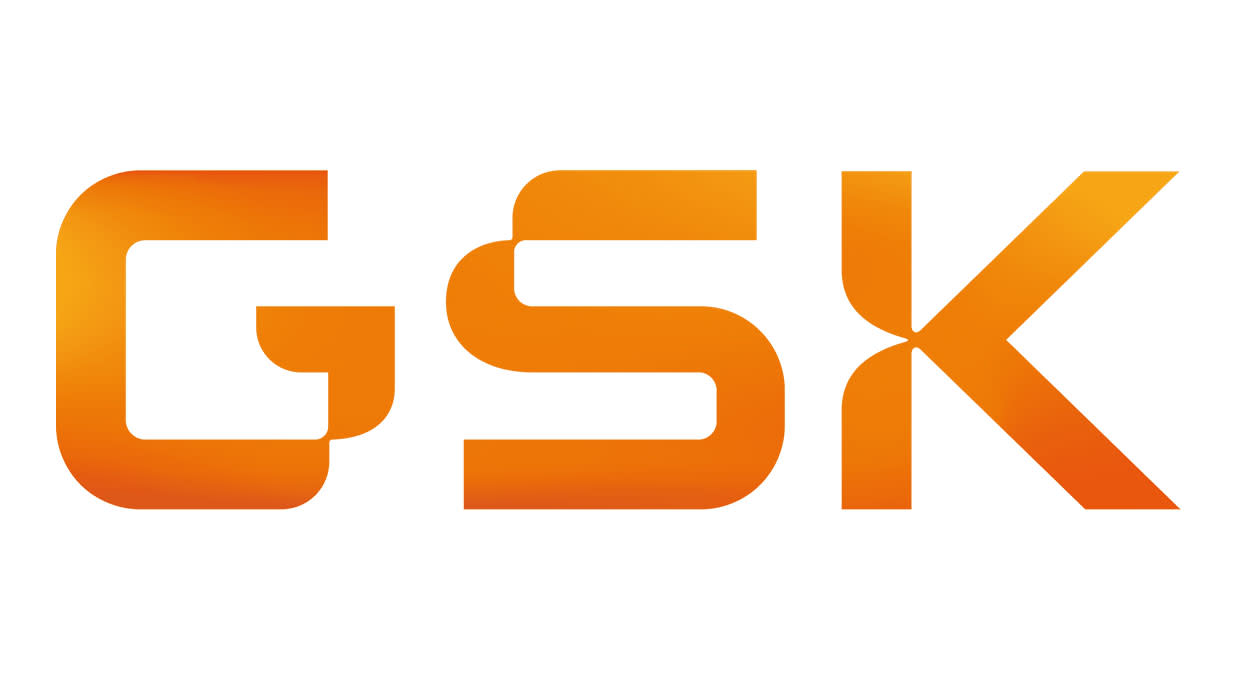GSK’s first-quarter revenue increased by 10% to £7.4bn when ignoring currency movements. This was underpinned by strong growth in Vaccines and Speciality medicines.
Underlying operating profit rose 27% to £2.4bn, helped by a shift towards higher margin products and lower overheads.
Free cash flow improved from a £0.7bn outflow to an inflow of £0.3bn. Net debt was down 16.7% to £15.0bn.
GSK declared a first-quarter dividend of 15p per share, with full-year guidance of 60p unchanged.
Revenue growth’s now expected at the upper end of the 5-7% range, and underlying profit growth guidance has shifted higher from 7-10% to 9-11%.
The shares were up 1.5% in mid-morning trading.
Our view
The strong momentum GSK enjoyed last year has carried on into 2024, with revenue and profit guidance both getting upgrades after a strong first quarter.
The financial progress is underpinned by excellence in research & development that spawned four major product approvals last year. There's potential for more significant clinical milestones in 2024. However, there can be no guarantee of continued success. Falling sales of COVID-19 medicines have held back growth but now that they are no longer material, comparatives should become less demanding.
Vaccines are proving to be a key growth driver. Further growth is expected for Shingrix for the prevention of shingles as it targets higher patient acceptance and new markets. The recently approved respiratory syncytial virus (RSV) vaccine, Arexvy, has made a good start following commercial launch and there's more to go for, but it faces some tough competition.
The group also has a strong presence in HIV treatments which make up about 20% of total revenues. Its newer HIV treatments are a key part of GSK's future, as generic competitors eat away at pricing power for some of the group's legacy treatments. But the group focus for HIV is shifting to the the group’s long-acting innovation therapies. And its these that have helped capture additional market share and drive double-digit growth for the category in the first quarter.
Cancer treatment, although relatively small in terms of current sales, is one key area for future development, with several late-stage programs in the pipeline.
Net debt has been coming down and currently sits at under 1.5x forecast cash profits, which we don't see as a major concern. The strong financial position supports a prospective dividend yield of 3.7%, but remember, no future pay outs to shareholders can be assured.
GSK's valuation is below the long-term average, and significantly less demanding than many of its peers. This may be in part due to remaining question marks over cancer links to its heartburn drug Zantac. Management is working hard to draw a line in the sand, but whilst significant court hearings are still pending, it's likely to remain a key driver of sentiment.
Once more clarity emerges on the scale of any outstanding liability, strong execution of the growth strategy and clinical pipeline are likely to be the key focus for shareholders. So far so good, but remember, the drug approval process is long and expensive, with many treatments never seeing the light of day.
Environmental, social and governance (ESG) risk
The pharmaceuticals sector is relatively high-risk in terms of ESG. Product governance, particularly with safety and marketing, and affordable access to treatment are the key risk drivers. Labour relations, business ethics and bribery and corruption are also contributors to ESG risk.
According to Sustainalytics, GSK's overall management of material ESG issues is strong. There's an independent, board-level, corporate responsibility committee focused on ESG performance and framework and 10% of executive pay is tied to ESG metrics. It's ranked first on both the Access to Medicine Index and Access to Vaccines Index thanks to industry-leading efforts to ensure medicines and vaccines are provided to patients in need. Management practices concerning the transparency of clinical trials are strong, and it's committed to international standards. But despite a strong product safety programme, GSK lacks external quality management certification at its manufacturing sites.
GSK key facts
All ratios are sourced from Refinitiv, based on previous day’s closing values. Please remember yields are variable and not a reliable indicator of future income. Keep in mind key figures shouldn’t be looked at on their own – it’s important to understand the big picture.
This article is not advice or a recommendation to buy, sell or hold any investment.No view is given on the present or future value or price of any investment, and investors should form their own view on any proposed investment.This article has not been prepared in accordance with legal requirements designed to promote the independence of investment research and is considered a marketing communication.Non - independent research is not subject to FCA rules prohibiting dealing ahead of research, however HL has put controls in place(including dealing restrictions, physical and information barriers) to manage potential conflicts of interest presented by such dealing.Please see our full non - independent research disclosure for more information.


